Keeping your pet clean and healthy is part of being a great pet parent. But have you ever wondered whether the pet shampoo you’re using is truly the best for your furry friend?
Natural pet shampoos are becoming popular. They are gentler and safer for pets than many other options. However, choosing the right one can feel overwhelming.
This guide will help you choose the best natural pet shampoo for your dog or cat. You will understand your pet’s skin needs and find harmful ingredients to avoid. Let’s ensure bath time is as safe and enjoyable as possible—for both you and your pet!
Why Natural Pet Shampoo Is a Must?
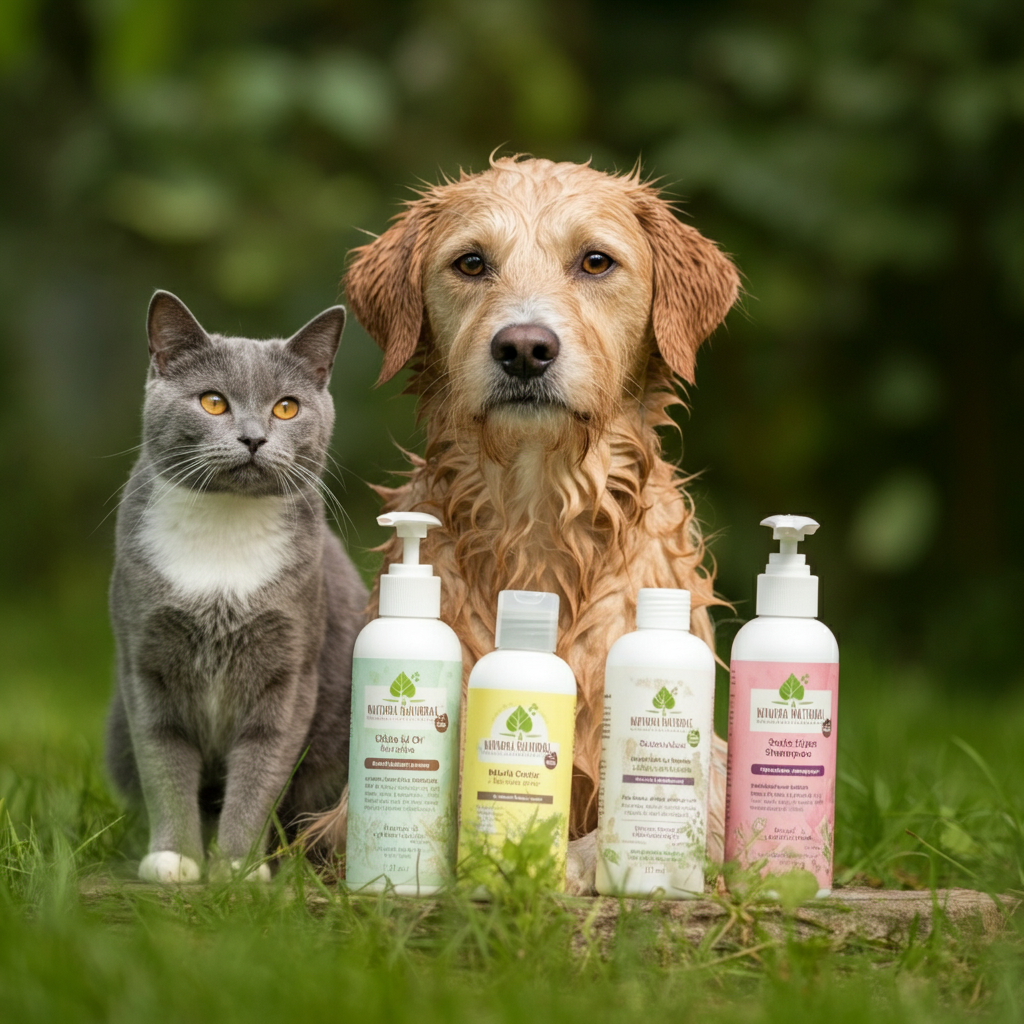
Natural pet shampoos are different from regular shampoos. They use ingredients from plants and minerals. They do not contain harsh synthetic chemicals. These products focus on soothing, moisturizing, and cleaning without disrupting your pet’s skin barrier or causing irritation.
Natural pet shampoos are especially beneficial if your dog or cat has sensitive skin or allergies. Plus, they’re better for the environment! When you rinse these shampoos down the drain, you’re putting fewer harmful chemicals into waterways.
But not all natural shampoos are equal in quality. It’s important to pick one that’s safe, effective, and suited to your pet’s unique needs.
Understanding Your Pet’s Skin Needs

Just like humans, pets have different skin types and sensitivities. Before you buy a shampoo, take time to assess your pet’s skin and coat.
Does Your Pet Have Sensitive Skin?
If your dog or cat has dry, flaky, or irritated skin, choose a shampoo with soothing ingredients. Look for oatmeal, aloe vera, or chamomile. These additives gently cleanse while offering relief and hydration.
Is Your Pet Prone to Allergies?
Pets with allergies may react poorly to certain fragrances, dyes, or harsh chemicals. Hypoallergenic shampoos are a great choice for these pets. They reduce irritants that might cause an allergic reaction.
Is Your Pet’s Coat Oily or Greasy?
If your pet’s coat gets oily, use shampoos with gentle astringents. These can help balance natural oils without removing all the coat’s oils.
Fleas or Ticks? For pets with fleas or ticks, many natural shampoos use essential oils like neem or citronella. These oils keep pets away without using harmful chemicals.
When considering your pet’s skin, it’s important to consider not only your furry friend’s skin but also your own. Many conventional products contain harsh chemicals or artificial fragrances that can cause irritation, dryness, or allergic reactions on human skin. That’s why you should follow perfect skincare tips.
Key Ingredients to Look For in Pet Shampoo
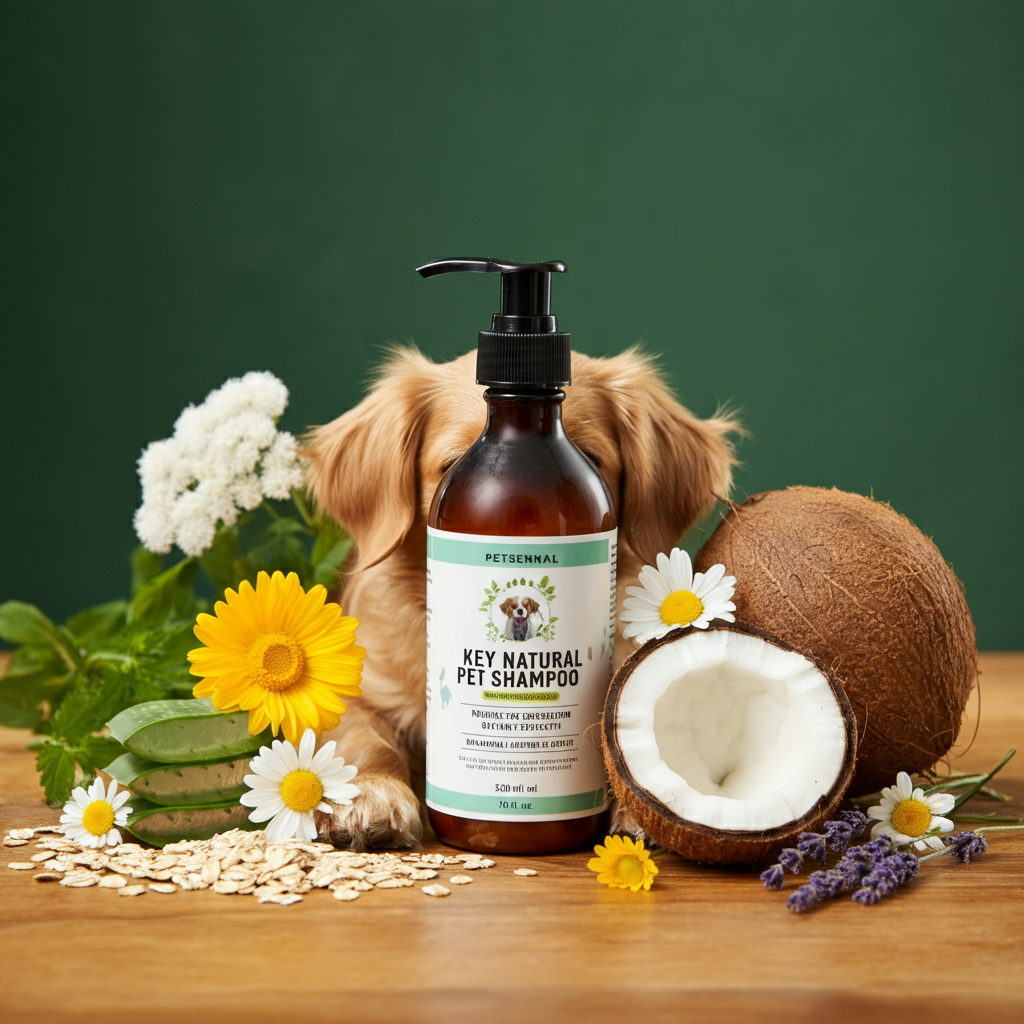
A good natural pet shampoo contains safe, high-quality ingredients. These ingredients help clean and nourish your pet’s skin and coat. Here are the ingredients you should keep an eye out for:
Helps soothe irritated skin and acts as a natural moisturizer.
Provides relief for dry, itchy, or inflamed skin.
A gentle cleanser that also conditions and moisturizes.
Calms sensitive skin and reduces redness.
- Shea Butter:
Keeps your pet’s coat shiny and luscious.
- Lavender or Eucalyptus Oils (in small amounts):
Add natural antibacterial properties and a calming scent.
Remember to ensure the essential oils included are pet-safe, since some oils (like tea tree oil) can be toxic in high concentrations.
Avoiding Harmful Chemicals and Additives
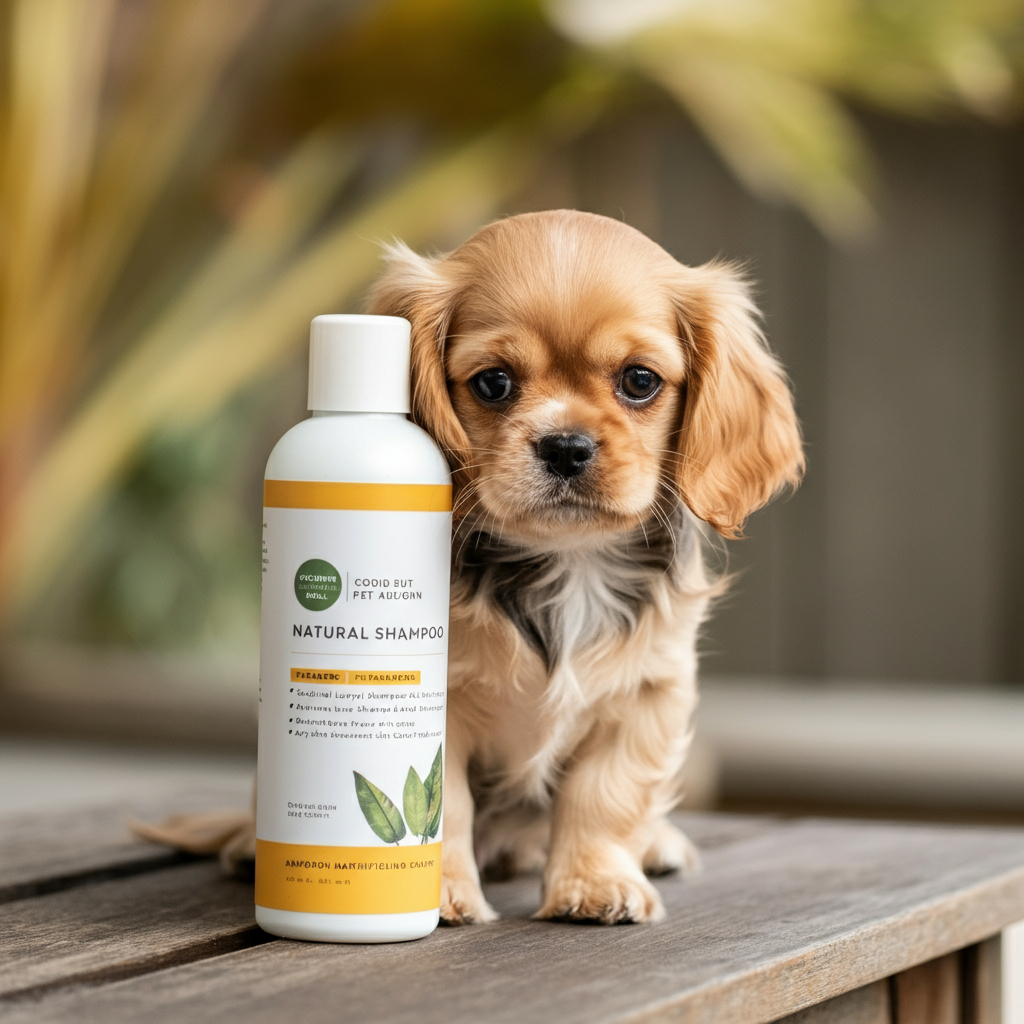
Finding the best natural pet shampoo isn’t just about what’s included but also what’s left out. Avoid the following ingredients at all costs:
- Sodium Lauryl Sulfate (SLS) is a strong chemical often found in regular shampoos. It can dry out your pet’s skin.
- Parabens: Preservatives linked to allergies and hormone disruption.
- Artificial Fragrances: Can contain irritants or allergens that cause skin reactions in pets.
- Alcohol: Can dry out the skin and coat, leading to itchiness.
The fewer artificial ingredients, the healthier and safer the product will be for your pet.
Reading Labels in Pet Shampoo Like a Pro
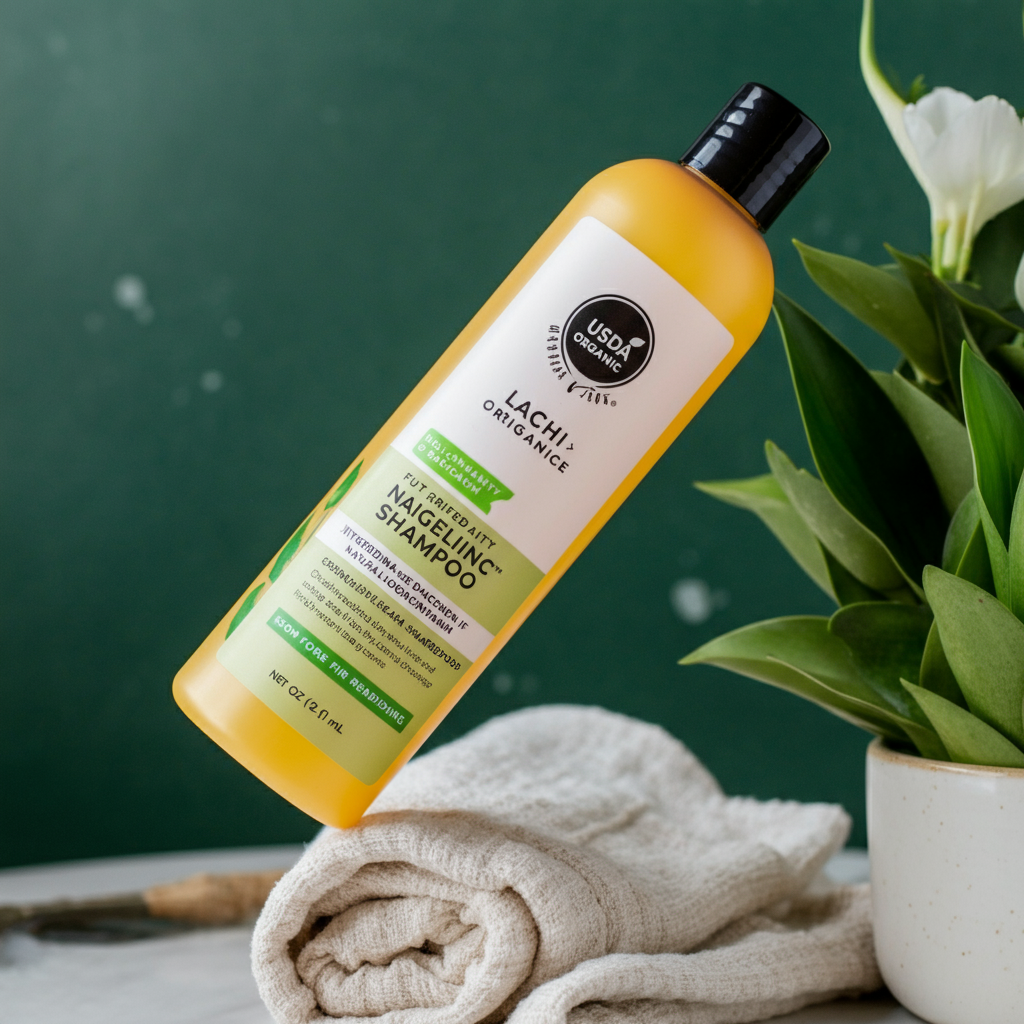
Deciphering product labels can be tricky, but it’s critical when choosing a shampoo. Here’s how to spot a truly “natural” product versus those with misleading claims:
- Look for Certifications: Shampoos labeled “organic” or “natural” aren’t always regulated. Check for certifications like USDA Organic.
- Ingredient Placement: Ingredients are listed by concentration. If “natural” ingredients like aloe vera are at the bottom of the list, they may be in minuscule amounts.
- Transparency is Key: A trustworthy brand lists its ingredient breakdown on the packaging or website.
Always check the ingredients label to ensure that the product is free from harmful chemicals.
Choosing the Right Scent for Your Pet
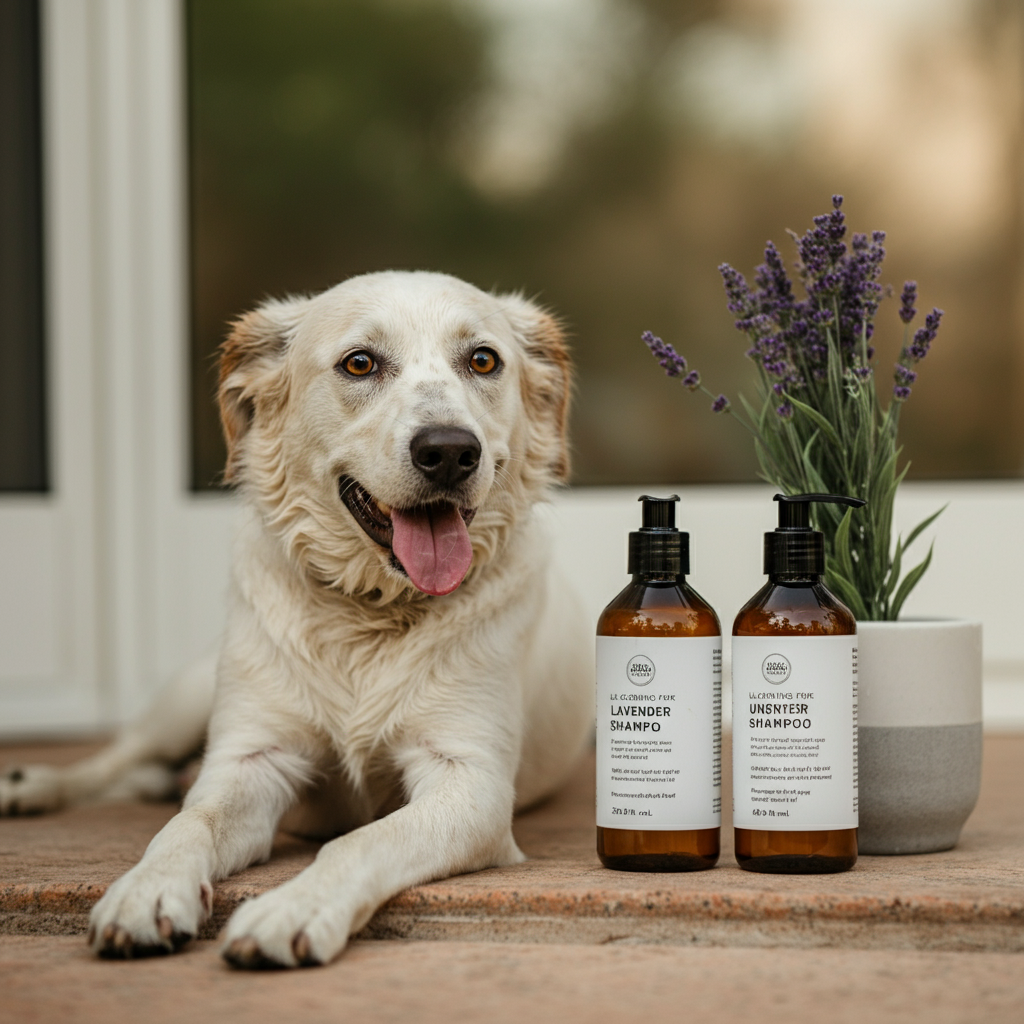
While you may love a lavender-scented soap or citrusy shampoo, not all scents are ideal for pets. Dogs and cats have a heightened sense of smell, so overly fragrant shampoos may irritate them.
Look for products with mild, natural scents derived from essential oils rather than artificial fragrances. If your pet dislikes strong scents, opt for an unscented shampoo to keep them comfortable.
Recommendations of Pet Shampoo for Different Pets

Finding a shampoo tailored to your pet’s specific needs helps optimize their coat’s health and shine. Here are a few ideal options by pet type:
- For Dogs with Dry Skin: Choose an oatmeal or aloe-based formula to soothe and moisturize.
- For Cats: Use a gentle, unscented shampoo made just for cats. They are more sensitive to ingredients than dogs.
- For Long-Haired Pets: Consider shampoos with detangling properties to prevent knots and matting.
- For Puppies and Kittens: Opt for tear-free, hypoallergenic shampoos that are gentle on young, sensitive skin.
Be sure to research any specific product recommendations based on your pet’s breed, coat type, or age.
Tips for Bathing Your Pet Safely
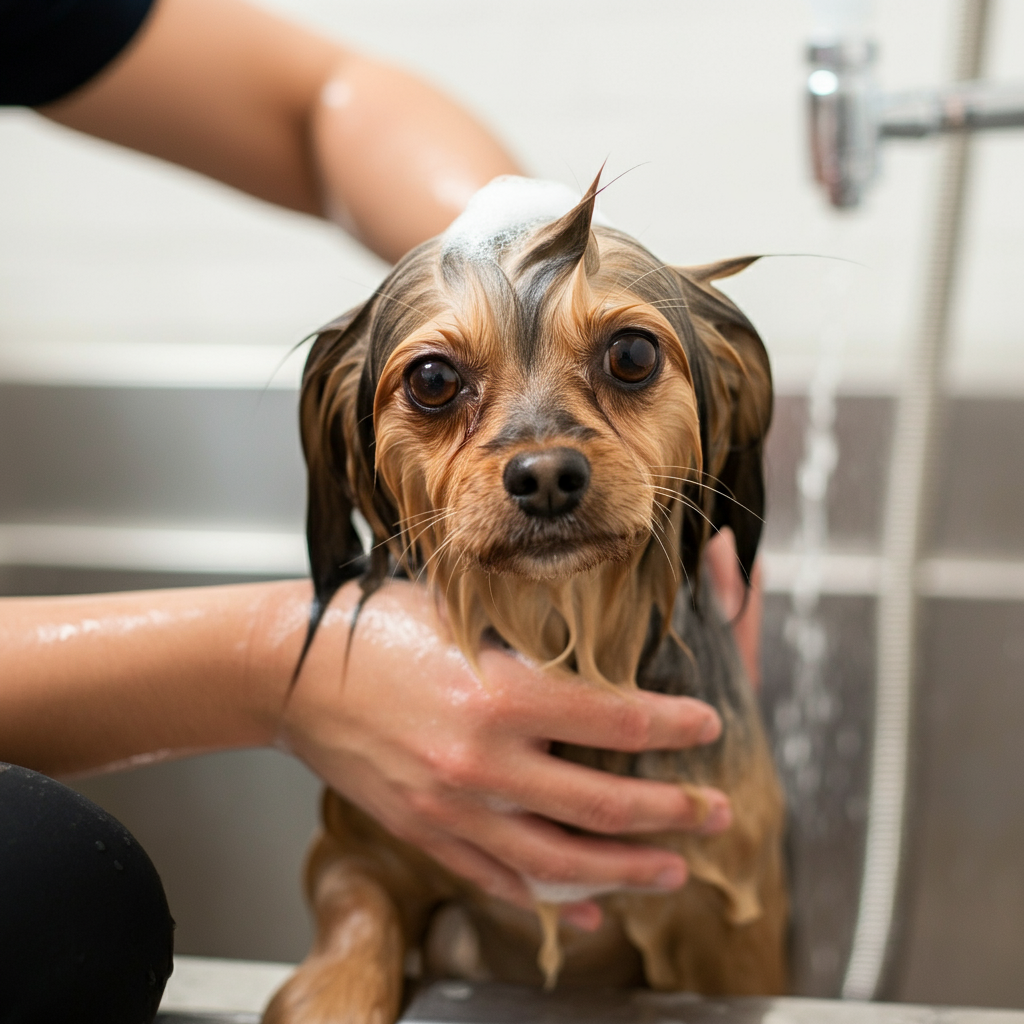
Bathing isn’t something pets look forward to, but with the right approach, it can become a calmer experience for both of you:
- Brush Before You Wash: This helps remove excess hair and tangles.
- Use Lukewarm Water: Ensure water isn’t too hot or cold to keep your pet comfortable.
- Use the Right Amount of Shampoo: Using too much shampoo can dry out your pet’s skin. Stick to a quarter-sized amount based on your pet’s size.
- Rinse Thoroughly: Residual shampoo can irritate the skin.
Reward your pet with treats after bath time to ensure a positive association for future grooming sessions.
Finding the Perfect Shampoo for Your Pet
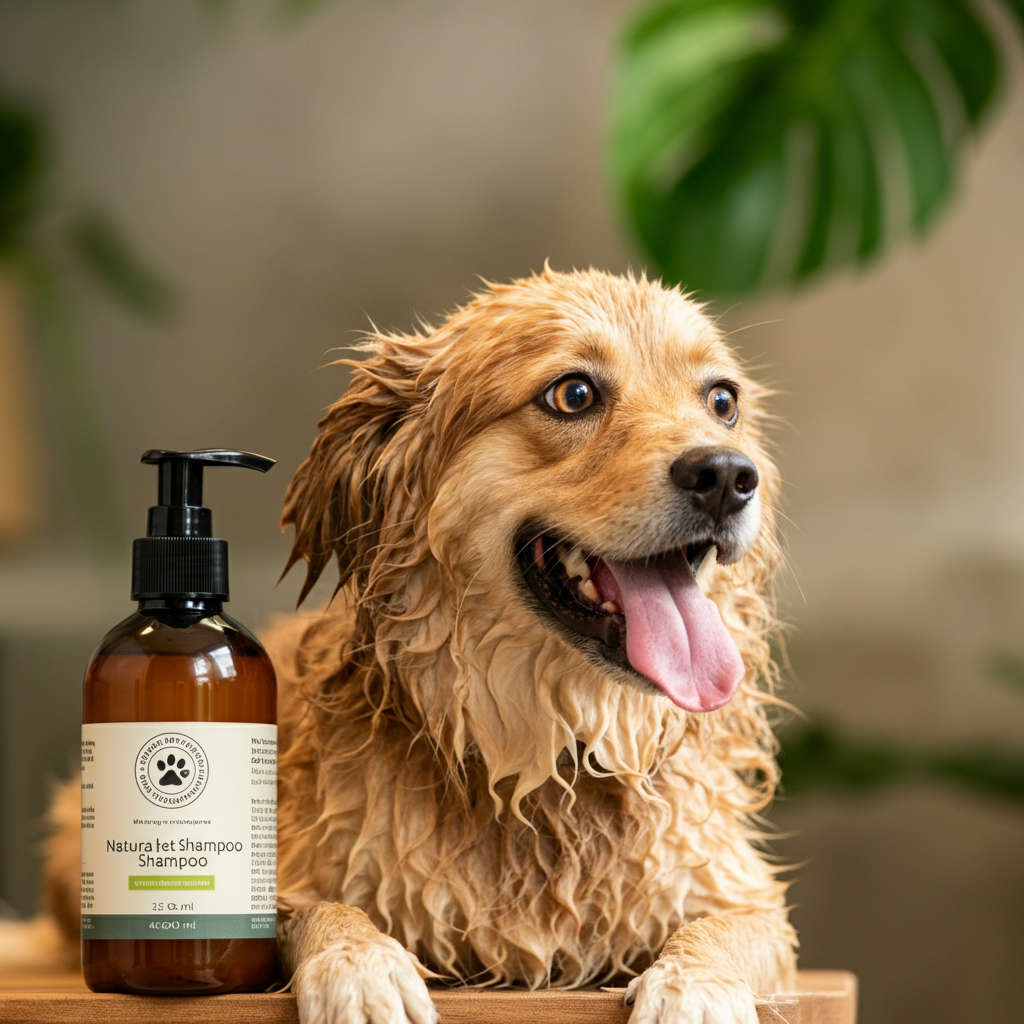
Choosing the best natural pet shampoo depends on knowing your pet’s needs. It also involves reading ingredient labels closely. Finally, pick a product that does not have harmful additives. Always prioritize quality over convenience to keep your furry friend healthy and happy.
Need help selecting the right product? Check out our list of safe and high-quality natural pet shampoos. These shampoos are great for all types of pets. Your pet deserves the best, and a thoughtfully chosen shampoo is a step toward their overall well-being.
Happy grooming!
FAQ:
1. Are natural pet shampoos better than regular ones?
Yes, natural pet shampoos are typically free from synthetic fragrances, parabens, and sulfates, making them safer and less likely to irritate your pet’s skin.
2. Can I use human shampoo instead of pet shampoo?
No, human shampoos are not pH-balanced for pets and can strip away their natural oils, leading to dry skin and irritation. Always use a shampoo specifically made for pets.
3. How do I know if a pet shampoo is truly natural?
Check the ingredient list for plant-based components and make sure the label says “natural” or “organic.” Look for certifications from trusted pet care or organic organizations.
4. Is natural pet shampoo safe for puppies and kittens?
Yes, but always choose a formula specifically labeled as safe for young animals. Their skin is more delicate, so a mild, tear-free natural pet shampoo is best.
5. Does natural pet shampoo help with fleas and ticks?
Some natural pet shampoos include essential oils like neem, eucalyptus, or citronella that can help repel fleas and ticks, but they’re not a replacement for veterinary-approved flea treatments.




Pingback: Anti Barking Device for Dogs: Every Pet Owner Should Know